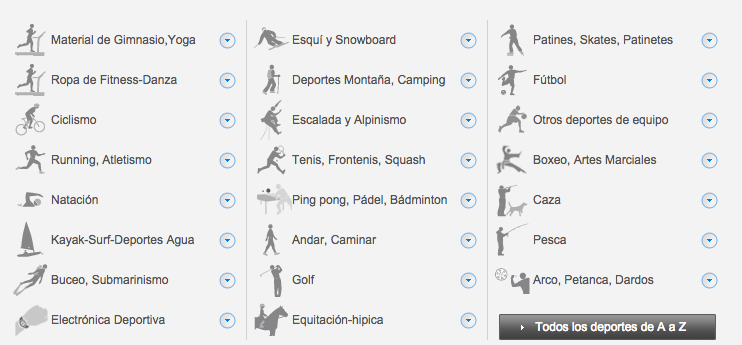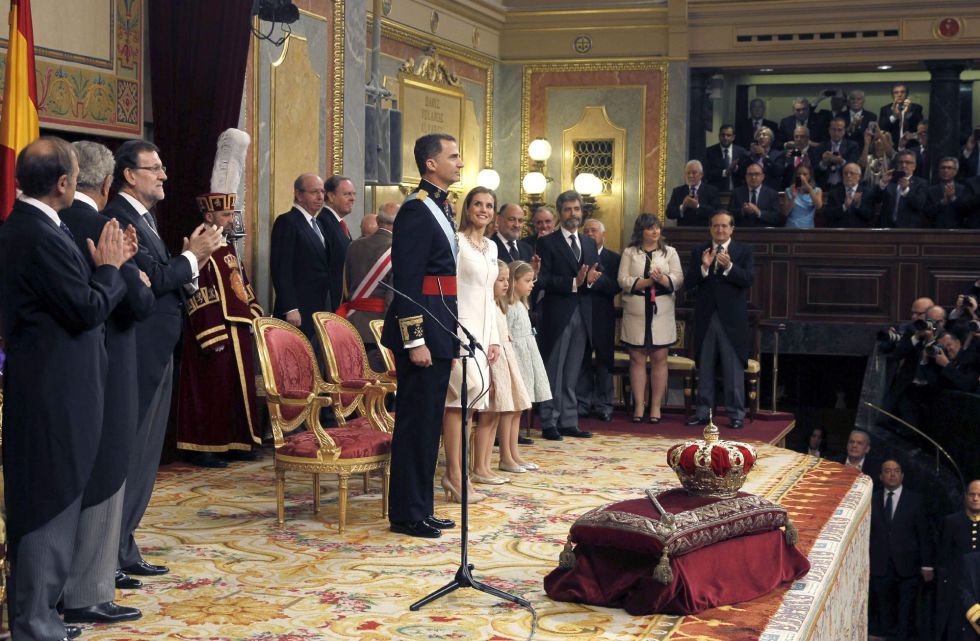 |
| Decathlon Image Source |
Decathlon: Sporting Goods Store in Spain
Decathlon is a sporting goods store of French origin, whose chains are found around Europe and in a few other areas of the globe. Think of it as your Spanish equivalent to Dick's Sporting Goods.The prices are affordable, so these aren't top-of-the-line super expensive sporting goods, but the quality is good enough to warrant purchases.
Decathlon Departments
So what can you find at a Decathlon in Spain? Tons!Here are the sporting departments listed on their website, with handy photos in case you're unfamiliar with a word:
For those who can't see the image, here are some of the included departments:
- Gimnasio, Yoga (Gymnastics, Yoga)
- Ropa de Fitness-Danza (Dance/Fitness Clothing)
- Ciclismo (Biking)
- Running, Atletismo
- Natación (Swimming)
- Kayak-Surf-Deportes Agua (Water sports)
- Buceo, Submarinismo (Diving)
- Esquí y Snowboard (Ski and Snowboard)
- Deportes Montaña, Camping (Mountain sports, Camping)
- Tenis, Ping poing, Bádminton
- Andar, Caminar (Walking, Hiking)
- Golf
- Fútbol (Soccer)
- Caza, Pesca (Hunting, Fishing)
Basically any sport/outdoors/athletic thing you're looking for, chances are they've got it at Decathlon. You can browse their website to have a look (if your Spanish isn't great, you can still browse by looking at the pictures and prices of items).
Decathlon Stores in Spain
With 99 stores in the country, Spain currently comes in second to France for the most Decathlon stores per country (France has 260).Here's a Google map of all of the Decathlon stores in Spain.
Decathlon in Madrid
Most of the Madrid region Decathlon stores are in suburbs, outside of the city.
The one you see in the center of the map (right near the words "Ciudad Lineal"), is in Nuevos Ministeros. It's actually called Decathlon Golf Castellana, and specializes in golf, running, and fitness. So they only have a tiny selection of the departments I listed above.
That being said, you'll probably have to venture to one of the bigger Decathlons for a worthwhile trip.
When I've shopped at Decathlon in Madrid, both this fall for the Camino and years ago for some athletic clothing for frisbee, I've gone to the branch in Usera, which is on the south side of Madrid.
The first time I went via public transportation, and the second I was lucky enough to be driven by a Spanish friend. If you're taking public transportation, the nearest station is actually a Cercanías station, Orcasitas. You can also check for buses from your location, using this Google map (click "Cómo llegar" and then type in your address as the starting point).
If You Go...
What: Decathlon (Usera branch)
Address: Avenida Rafaela Ybarra SN, 28041 (294) Madrid (SN = sin número, meaning there's no "house" number)
Cercanías: Orcasitas
Hours: 9:00 - 22:00 Monday through Saturday, 10:00 - 22:00 Sundays
Phone: 913.410.080











.png)









